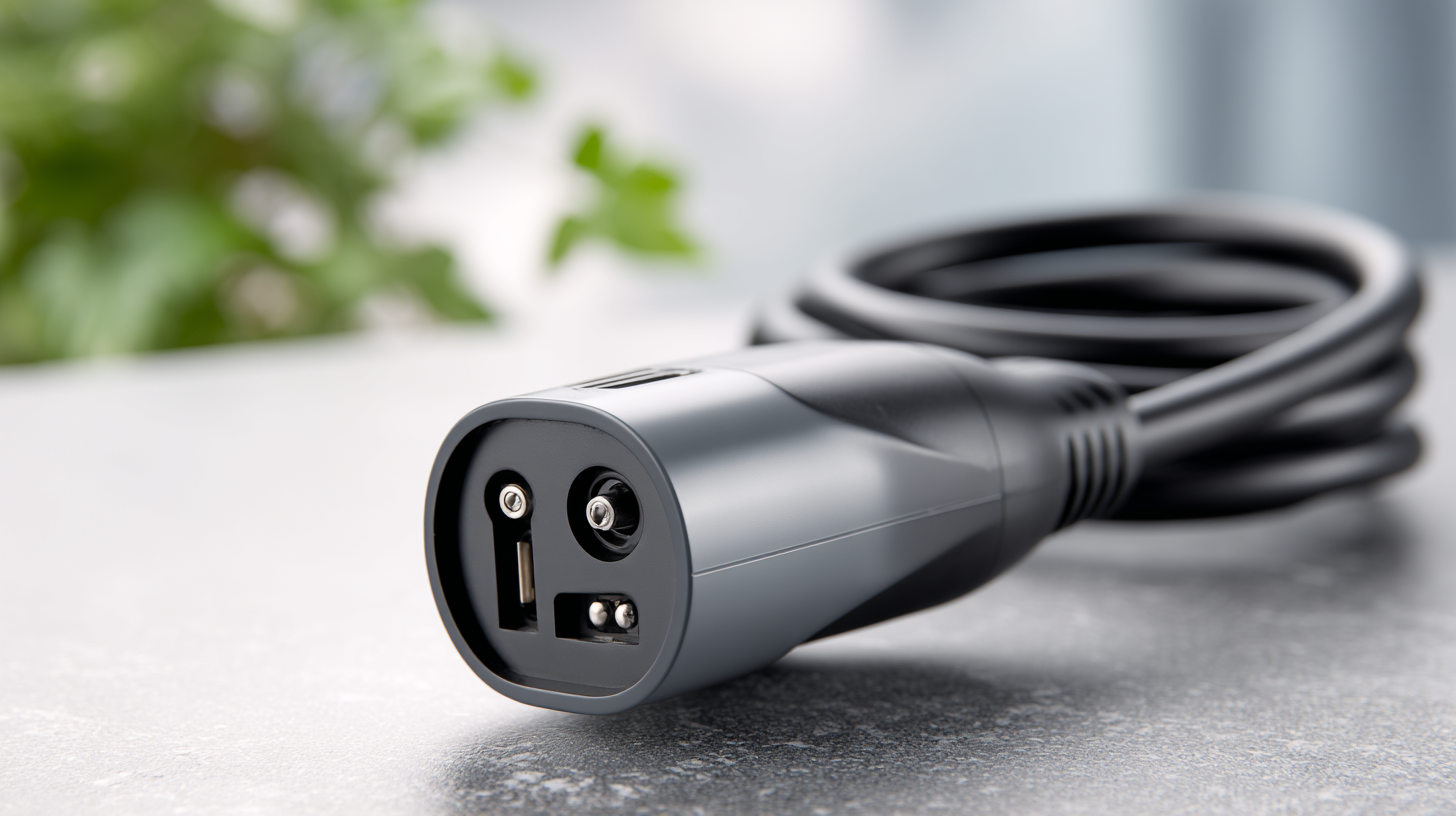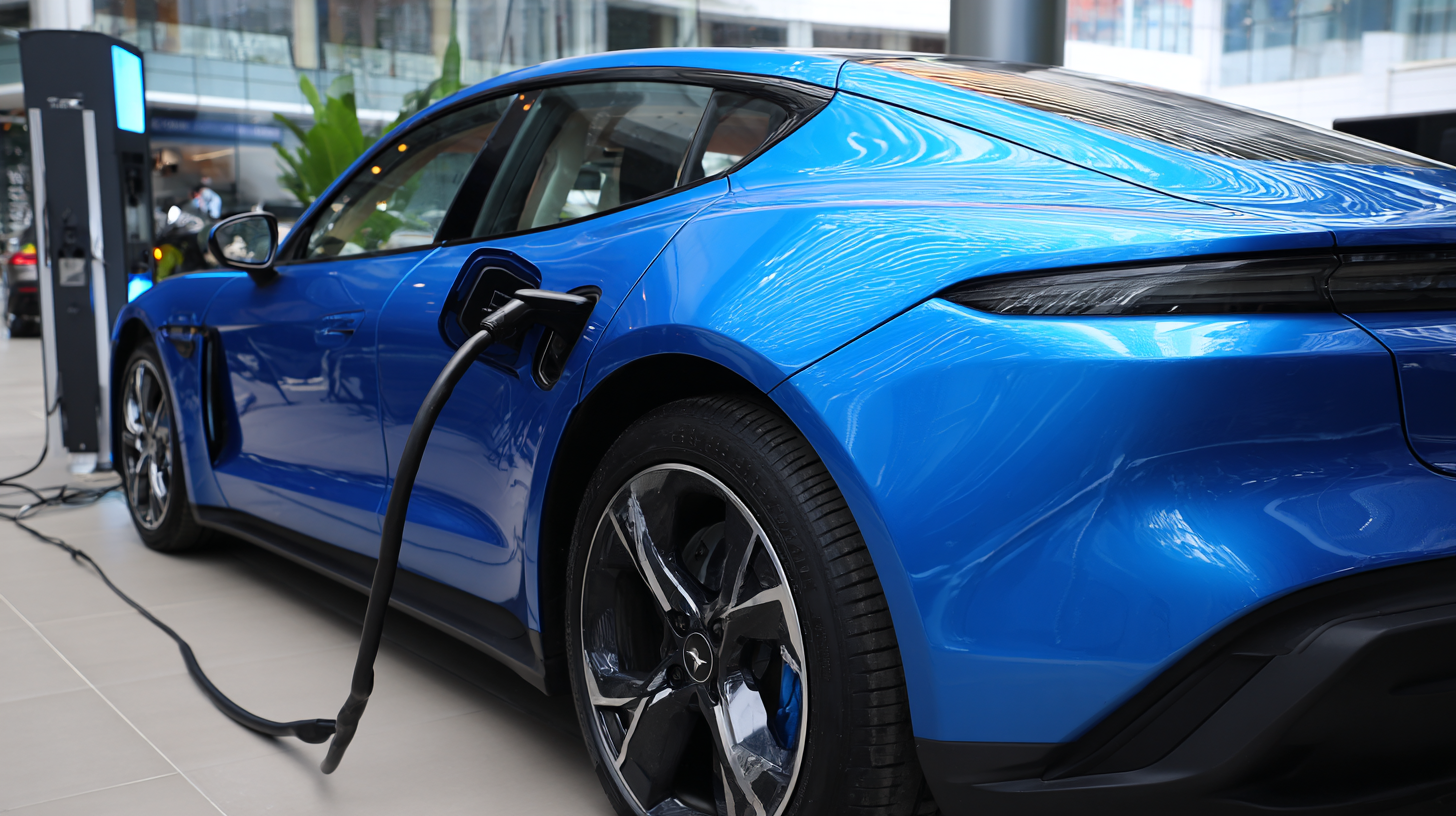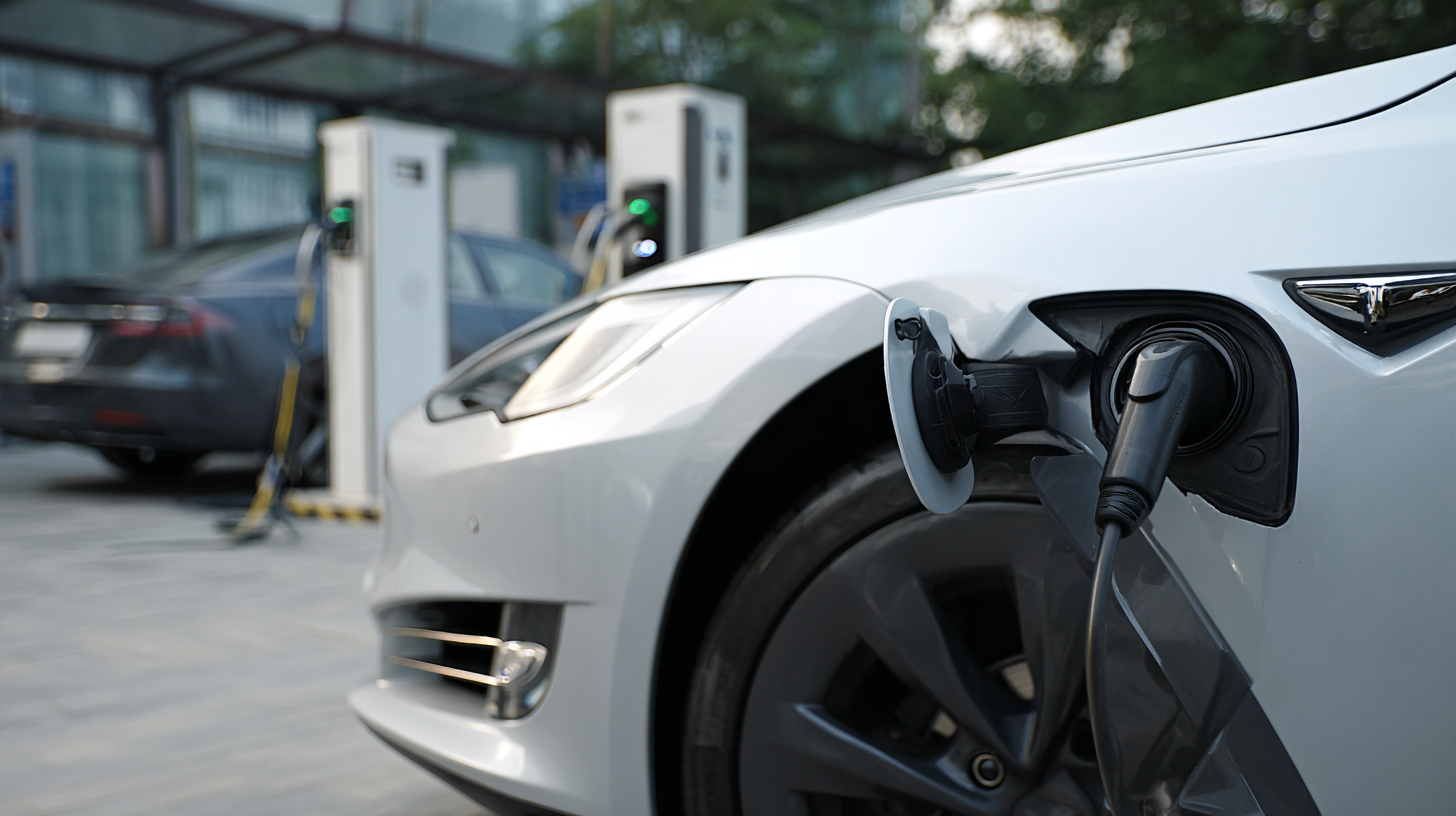As the electric vehicle (EV) market continues to expand, the demand for efficient EV charger adapters is surging. According to a recent report by MarketsandMarkets, the global EV charging market is expected to grow from $29.7 billion in 2022 to $100 billion by 2030, with a compound annual growth rate (CAGR) of 14.5%. This substantial growth underscores the need for high-quality EV charger adapters that meet international standards.

In 2024, global import-export certifications will play a pivotal role in ensuring that these adapters not only comply with safety regulations but also deliver optimal performance. As manufacturers embrace innovative alternatives to traditional charging solutions, understanding the certification landscape will be crucial for businesses aiming to thrive in this competitive industry. The right certifications can significantly impact the marketability and reliability of the EV charger adapter, making it an essential focus for stakeholders throughout the supply chain.
The global electric vehicle (EV) market is rapidly evolving, and achieving
global import-export certifications
for EV charger adapters is fraught with challenges. Countries are adjusting their
regulatory frameworks to protect domestic industries, as seen in Turkey's recent
hostility toward Japanese and Chinese EVs. Such changes can disrupt the
certification processes, making it essential for manufacturers to stay agile and
informed about local regulations and compliance standards.
Moreover, the demand for high-quality chargers continues to rise, with the global
on-board charger market projected to reach USD 41.08 billion by 2033,
growing at a robust CAGR of 17.67%. Companies aiming for
certification must navigate a complex landscape of safety standards and regional
regulations, which can vary significantly between markets. For instance, advancements
like bidirectional charging technology are gaining traction, emphasizing the importance
of certifications for ensuring compatibility and safety across different jurisdictions.
As the EV market expands, the ability to secure relevant certifications will become a
critical factor for success.
Manufacturers who can adapt to these challenges and streamline their compliance efforts
will likely emerge as leaders in the growing global EV landscape.
As the demand for electric vehicles (EVs) continues to surge, so does the necessity for reliable EV charger adapters that meet stringent regional certification standards. In 2024, understanding these certifications becomes crucial for manufacturers and consumers alike. The global EV market is projected to reach approximately 28 million units sold, according to EV Volumes, which underlines the critical role of certified components in ensuring safety and efficiency across diverse markets.
Regional certification standards differ significantly, with the United States adhering to the Underwriters Laboratories (UL) standards, while Europe utilizes the International Electrotechnical Commission (IEC) standards. For example, the IEC 62196 standard ensures compatibility and safety of charging interfaces, which is essential as the EU anticipates that 60% of all vehicles will be electric by 2030. Meanwhile, countries like China have their own set of standards, the GB/T series, which aligns with its rapidly growing EV infrastructure. Understanding these regional nuances helps manufacturers to not only comply with regulations but also to enhance consumer trust in their products.
| Region | Certification Body | Certification Type | Standard Requirements | Validity Period |
|---|---|---|---|---|
| North America | UL | Product Safety Certification | UL 2202 | 5 Years |
| Europe | CE | Conformity Assessment | EN 61851 | Indefinite (Periodic Review) |
| Asia-Pacific | PSE | Product Safety Certification | JIS C 8714 | 3 Years |
| International | ISO | Quality Management Certification | ISO 9001 | 3 Years |
| South America | INMETRO | Product Quality Certification | NBR NM 280 | 5 Years |
As the electric vehicle (EV) market continues to expand, manufacturers of EV charger adapters face several key compliance issues that could impact their ability to compete globally. Understanding the regulatory landscape is crucial, as different regions have specific certification requirements regarding safety, efficiency, and environmental impact. Non-compliance can lead to significant financial penalties and reputational damage, making it imperative for manufacturers to stay informed about the latest regulations and standards.
**Tip:** Conduct thorough research on the certification requirements for each market where you plan to sell your EV charger adapters. Keeping up with international standards, such as those set by the International Electrotechnical Commission (IEC) and more localized regulations, can help ensure a smoother path to market.
Additionally, manufacturers should prioritize quality assurance processes that align with compliance demands. Regular audits and product testing can identify potential issues before they become costly problems. Furthermore, engaging with compliance experts can provide valuable insights into evolving regulations, allowing manufacturers to proactively adapt their products.
**Tip:** Collaborate with industry experts and participate in relevant trade organizations to stay updated on changes in compliance requirements and best practices within the EV charger adapter sector. Networking within these communities can also forge essential partnerships and open opportunities for shared knowledge.
This chart illustrates the key compliance issues facing manufacturers in the EV Charger Adapter market in 2024, showcasing the percentage of manufacturers reporting these issues globally.
The EV charger adapter market is experiencing significant growth driven by changing consumer preferences and advancements in technology. According to industry reports, the global market for charger adapters is projected to see a compound annual growth rate (CAGR) of over 16.68%, with the GaN adapter sector potentially reaching $5.2 billion by 2032. This rapid growth indicates an increasing reliance on more efficient charging solutions in the electric vehicle segment.

Moreover, the demand for certification processes is intensifying as manufacturers aim to meet stringent global standards for their products. The most notable technologies—molecular beam epitaxy (MBE) and chemical vapor deposition (CVD)—are leading the charge in improving the performance of EV charger adapters. Reports suggest that the chemical integration methods enhance the efficiency of power electronic applications, which further encourages the adoption of these technologies in various industries, including automotive, aerospace, and defense.
Furthermore, the increasing collaboration among car manufacturers to use unified charging standards has catalyzed market expansion. The entry of more automotive brands into the EV market is likely to push certification processes to evolve, aligning with emerging market trends and regulatory requirements, ensuring a safer and more reliable charging infrastructure for consumers worldwide.
The global EV charging infrastructure is experiencing rapid growth, yet certification delays pose significant obstacles to its development. According to the International Energy Agency (IEA), electric vehicle (EV) sales soared to 6.6 million units in 2021, leading to a projected need for over 10 million public charging points by 2030. However, the process of obtaining necessary certifications for EV chargers can take months, contributing to a bottleneck in deploying these essential charging stations. Delays in certification not only hinder manufacturers from bringing their products to market but also impact the broader rollout of EV infrastructure, ultimately slowing down the transition to sustainable transport.
To navigate these challenges, manufacturers and stakeholders must streamline certification processes. Implementing a more transparent system that anticipates changes in regulatory standards could help expedite approvals. Additionally, engaging with global organizations and standard-setting bodies early in the development phase allows manufacturers to align their products with the latest requirements, reducing the risk of certification delays.
**Tips:**
1. **Stay Informed**: Regularly monitor updates from regulatory agencies to anticipate potential changes in certification requirements.
2. **Build Partnerships**: Collaborate with testing labs and certification bodies to ensure your products meet the latest standards from the outset.
3. **Utilize Modular Designs**: Develop adaptable EV charger designs that can easily accommodate future certification updates, minimizing rework and delays.









